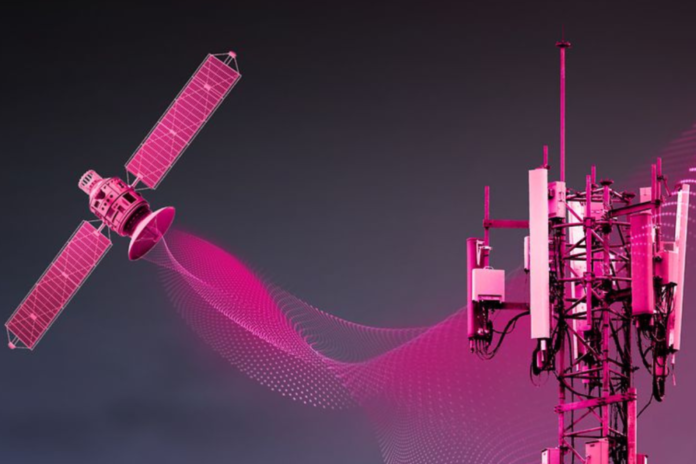T-IoT aims to be a one-stop-shop for connecting things from space and on the ground
One year after the launch of T-IoT, the first B2B service offered jointly by Deutsche Telekom and T-Mobile US, the operators are adding satellite connectivity to support more use cases with partners Intelsat and Skylo.
Satellite connectivity via Intelsat will be available in the second quarter of this year. In a next phase, T-IoT will add a converged satellite-cellular offering with Skylo and Intelsat based on the 3GPP Release 17 Non-terrestrial Network (NTN) standard. This makes it possible to integrate space and ground networks so that traffic can be handed over from one to the other without service interruption. The converged service is expected to be available in 2024.
Ubiquitous connectivity
“Our customers increasingly want ubiquitous connectivity … because the use case is very critical or because they need coverage in locations where we simply cannot build networks,” said Christopher Ruettgers, VP IoT Innovation and Market Development at DT, speaking at MWC.
DT pitched the expanded IoT service as “enabling global supply chain optimisation.” Claudia Nemat, Board Member for Technology and Innovation at DT, gave a shout out to the new capabilities in her keynote address at MWC, hailing the potential for “seamless” asset tracking “on land, on water, and in the air.”
As an example, a car manufacturer shipping vehicles from a factory in Asia to the port of Hamburg would be able to continuously track the vehicles across the journey from the plant to the car dealership, switching from satellite to cellular connectivity along the way, she said.
With the initial satellite IoT offering next quarter, DT will provide a common management layer that will allow enterprise customers to manage both cellular and satellite connectivity.
Ruettgers said there was a “clear need” for integration of satellite and cellular and making it “easily consumable in the same service and management layer.” DT’s mission is to be the “one-stop shop for ubiquitous IoT connectivity,” he said.
The next phase will bring “device convergence” enabled by startup Skylo. DT will launch an “early adopter programme” in the third quarter of 2023 for developers to work with certified chipsets and modules and create applications for the converged service.
Tapping start-up smarts
Founded in 2017, Skylo was born out of Stanford University. Parth Trivedi, CEO and co-founder of Skylo, described the company as a “non-terrestrial service provider that connects existing devices over existing satellites.” Skylo essentially acts as a wholesale roaming partner providing satellite capacity to mobile operators.
The use cases for converged connectivity are “profound,” he said. “Think about all the industrial locations where people and machines … need connectivity to work safely and productively,” such as oil and gas field, farms, or remote energy installations. Beyond enterprise applications, there are consumer use cases as well, such as connecting wearables, e-bikes, and smartphones.
Skylo recently announced partnerships with IoT module suppliers Quectel and Murata and is working to certify these devices on its network. The startup also partnered with UK smartphone maker Bullitt to provide direct-to-device satellite connectivity for two-way messaging on the device.
First mobile partner
DT is Skylo’s first mobile operator partner and Trivedi said the operator is ahead of its peers when it comes to leverages NTN for global IoT services.
“DT has been the best partner for us because they are a trans-Atlantic data orchestrator. That means for a solution like this that converges satellite and terrestrial connectivity, you can now receive a single solution with a single billing relationship with T-IoT. We’ve been working with T-IoT for over a year to come to this point while other carriers have frankly only just begun to think about it,” he said.



